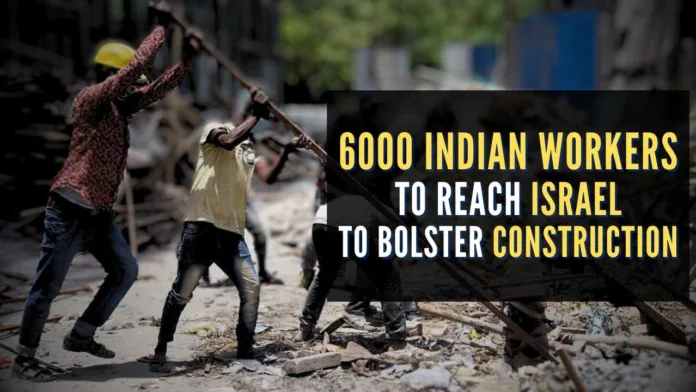
Indian workers to depart for Israel by May
More than 6,000 Indian workers will arrive in Israel during April and May to help the country’s construction sector meet a labour shortage following the outbreak of the Israel-Hamas conflict.
The move aims at revitalizing the nation’s construction sector, which has faced a severe workforce deficit.
A government-to-government (G2G) agreement between the two nations will govern the entry of Indian workers into Israel.
As part of this initiative, a group of 64 Indian construction workers landed in Israel last Tuesday, with plans for a total of 850 to arrive by mid-April.
Over the past few months, more than 900 Indian construction workers have made their way to Israel through a business-to-business (B2B) route involving recruitment agencies from both countries.
In a conversation with Indian Prime Minister Narendra Modi last December, Israeli Prime Minister Benjamin Netanyahu discussed the need to expedite the arrival of Indian workers.
The arrival of these workers is facilitated by an “air shuttle” service, a result of collaborative efforts between the Israeli Prime Minister’s Office (PMO), the Finance Ministry, and the Construction and Housing Ministry.
These bodies have jointly decided to subsidize charter flights, as revealed in a late Wednesday announcement by the Israeli government.
Israel’s construction industry heavily relies on foreign labour for roles that lack sufficient local workforce. Historically, the largest contingent of about 80,000 workers originated from the Palestinian Authority-controlled West Bank, with an additional 17,000 from the Gaza Strip. However, the onset of conflict in October led to the revocation of work permits for a vast majority of these workers.
For all the latest updates, download PGurus App.
- CM’s post in buzzing capital like Delhi not ceremonial, office holder has to be available 24×7: Delhi HC observes - April 29, 2024
- Amit Shah’s doctored video case: Delhi Police summons Telangana CM Revanth Reddy, other Congress leaders - April 29, 2024
- Smriti Irani files nomination from crucial Amethi seat; holds massive roadshow ahead of filing her nomination papers - April 29, 2024










